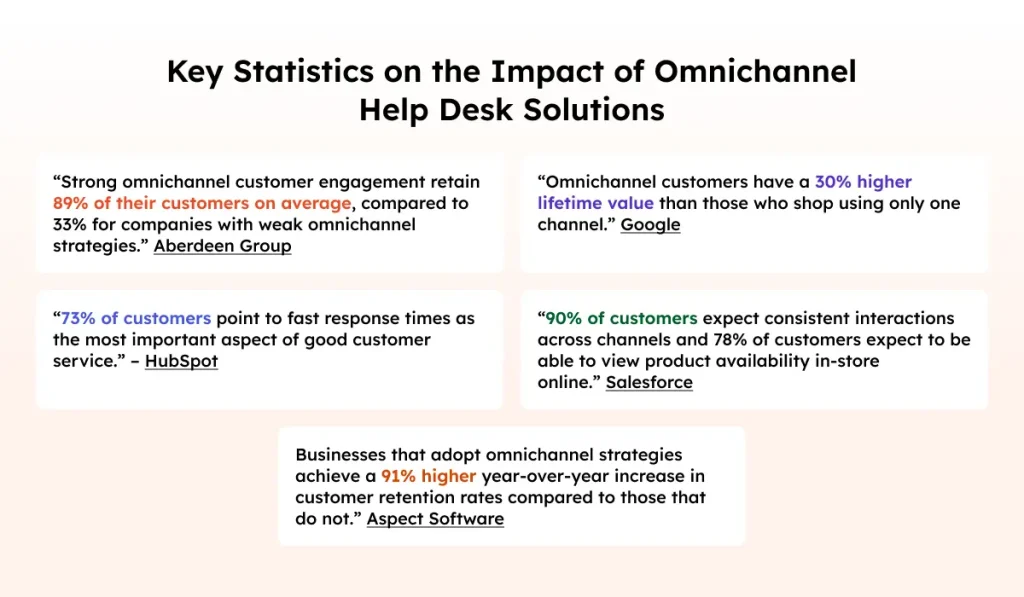Imagine a world where customer service is faster, smarter, and more personalized than ever before.
This isn’t a futuristic dream but a reality unfolding before our eyes, thanks to AI.
These AI customer service statistics highlight the significant impact and growth of AI technologies in the industry.
Did you know that 85% of customer interactions will be handled without a human by 2025?
This staggering statistic illustrates the rapid adoption of AI in customer service, fundamentally transforming how businesses interact with their customers.
 Impactful ai customer service statistics to know (2024) -Key AI Customer Service Statistics70% of consumers expect AI to transform their experience with companies. – Forbes
Impactful ai customer service statistics to know (2024) -Key AI Customer Service Statistics70% of consumers expect AI to transform their experience with companies. – ForbesThis highlights the high expectations consumers have for AI’s impact on their interactions with businesses.
40% of consumers believe AI improves their customer experience.Source: PWCConsumers recognize the positive impact AI can have on their interactions.
25% of customer service interactions will be handled by AI by 2025.Source: GartnerThe increasing reliance on AI in customer service is evident.
90% of businesses report faster complaint resolution with AI.Source: IBMAI significantly enhances the efficiency of customer service operations.
50% of consumers don’t trust AI to handle their issues.Source: EdelmanTrust remains a significant hurdle for AI adoption in customer service.
80% of consumers prefer human interaction over AI for complex issues.Source: PWCWhile AI is useful, many consumers still favor human agents for more complicated matters.
60% of millennials are comfortable with AI in customer service.Source: SalesforceYounger generations are more adaptable to AI technologies.
35% of consumers use AI-powered tools daily.Source: MicrosoftAI is becoming a routine part of consumers’ daily lives.
75% of businesses plan to invest more in AI for customer service.Source: AccentureCompanies are increasingly allocating resources to AI technologies.
45% of consumers find AI chatbots more efficient than human agents.Source: HubSpotAI chatbots can provide quick and effective solutions.
85% of AI implementations fail to deliver the expected results.Source: MIT SloanThere are significant challenges in successfully deploying AI solutions.
70% of consumers appreciate AI’s 24/7 availability.Source: CapgeminiThe constant availability of AI is a major advantage for consumers.
20% of consumers have stopped using a company due to poor AI experiences.Source: QualtricsNegative AI interactions can drive customers away.
65% of consumers believe AI will lead to better customer service.Source: OracleThere is optimism about AI’s potential to enhance service quality.
50% of businesses use AI for personalization.Source: McKinseyAI is widely used to tailor customer experiences.
30% of consumers find AI interactions frustrating.Source: AdobeNot all AI interactions meet consumer expectations.
95% of AI adopters report improved customer satisfaction.Source: DeloitteSuccessful AI adoption can lead to higher customer satisfaction.
60% of businesses use AI for data analysis.Source: GartnerAI is instrumental in processing and analyzing customer data.
40% of consumers believe AI makes customer service more impersonal.Source: Pew Research CenterThere is concern that AI might reduce the human touch in customer interactions.
85% of consumers expect companies to offer AI-powered self-service options.Source: ForresterSelf-service AI tools are becoming a consumer expectation.
55% of businesses use AI to enhance customer engagement.Source: IDCAI is used to create more engaging customer interactions.
75% of consumers are worried about data privacy with AI.Source: CiscoData privacy remains a major concern for consumers regarding AI.
90% of companies using AI report higher efficiency.Source: DeloitteAI significantly boosts operational efficiency.
50% of consumers feel AI enhances their shopping experience.Source: NielsenAI positively impacts the retail sector by improving shopping experiences.
65% of consumers believe AI will create more jobs than it eliminates.Source: World Economic ForumMany consumers are optimistic about AI’s impact on the job market.
Real-World ExamplesH&MH&M implemented an AI chatbot to assist customers with their queries and guide them through the shopping process.
This chatbot not only answered questions but also provided personalized fashion recommendations, leading to a 70% increase in customer engagement and a 40% boost in sales.
 Impactful ai customer service statistics to know (2024) -Bank of America
Impactful ai customer service statistics to know (2024) -Bank of AmericaBank of America’s AI-driven virtual assistant, Erica, helps customers with a variety of tasks, from checking account balances to providing financial advice.
Erica has successfully handled over 50 million customer interactions, significantly reducing the workload on human agents and improving customer satisfaction.
Implications and InsightsThe integration of AI in customer service offers numerous benefits, including cost savings, improved efficiency, and enhanced customer satisfaction.
Businesses can leverage AI to provide round-the-clock support, meet customer expectations for immediate responses, and handle a high volume of inquiries without compromising quality.
For businesses, the key takeaway is to invest in AI technologies to stay competitive and meet the evolving demands of customers.
AI can handle routine tasks, allowing human agents to focus on more complex issues, ultimately improving the overall customer experience.
ConclusionAI is revolutionizing customer service by making it faster, smarter, and more efficient. The statistics presented highlight the significant impact of AI on customer interactions and the potential benefits for businesses.
As AI technology continues to evolve, its role in customer service will only grow, offering new opportunities for companies to enhance their service offerings.